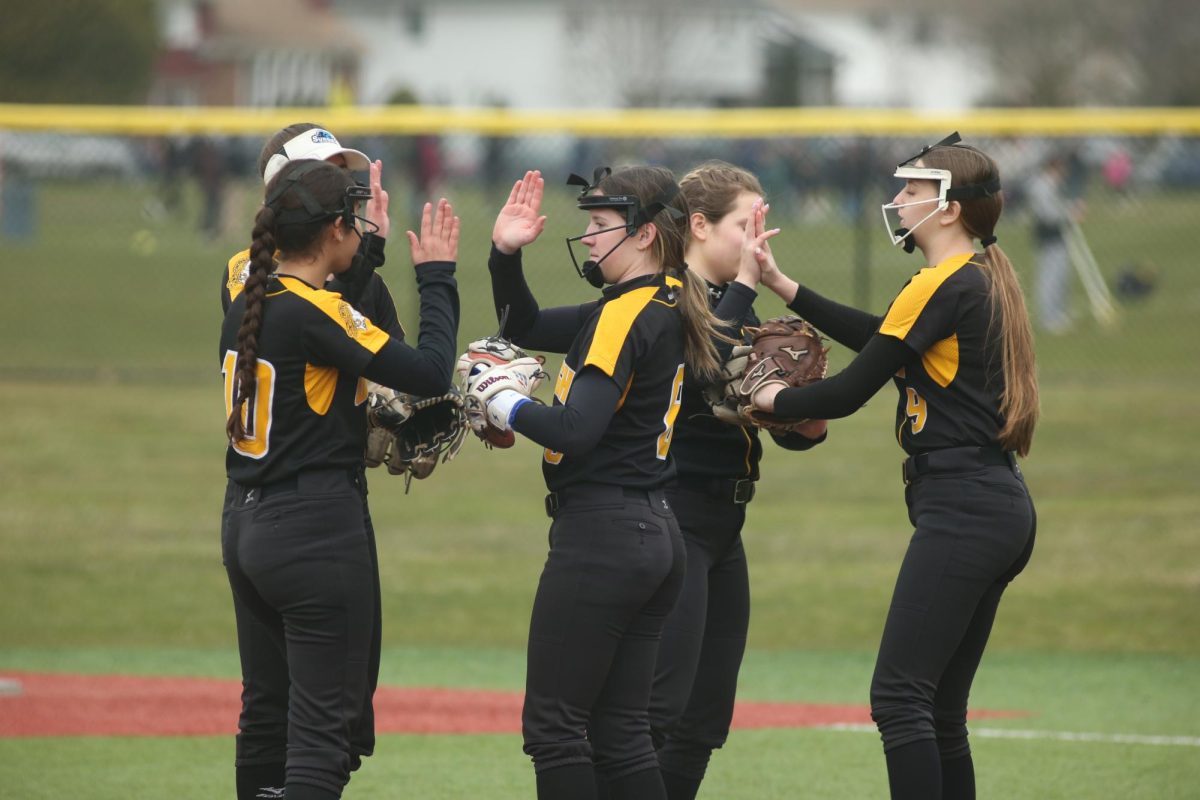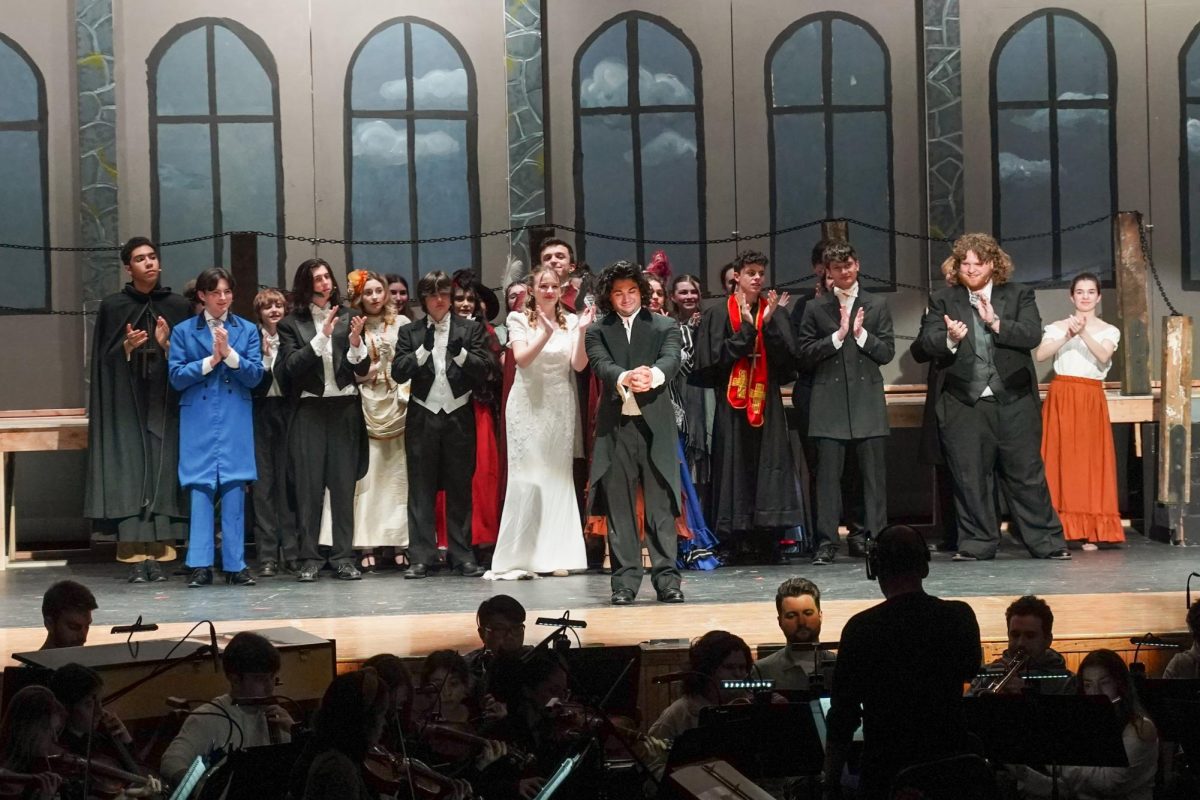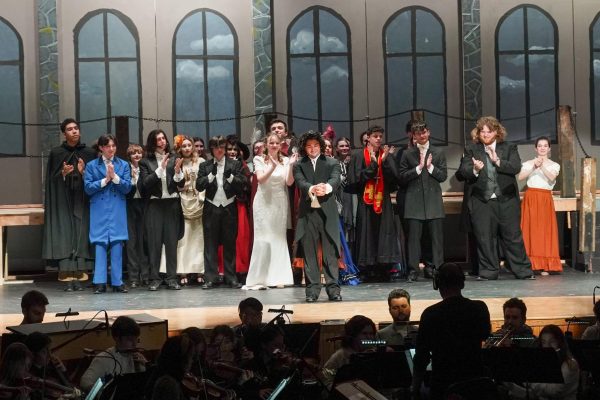Brava — Wantagh Students Journey to the Metropolitan Opera House
March 12, 2019
Friday, February 9 — The trip to see the Metropolitan Opera’s rendition of Rigoletto started with a ride on one of those old trains — you know, the ones where you feel you’ve stepped into a 1980’s time machine, with flickering lights and incessant shaking all the same.
Things started out slow… mainly because the train was too decrepit to reach high speeds, but the missing metro cards, wrong directions, and freezing rain did not help. Finally, the assortment of Music and Foreign Language students reached the Metropolitan Opera House in Lincoln Center.
With soaked hair and red noses, we were ushered up a grand staircase with ornate railings that simply themselves exude elegance; meanwhile our wet Converse left patterned imprints on the red velvet carpeting.
I was fortunate enough to be seated next to our school’s appointed Metropolitan Opera Expert Volunteer, Karen Bruckheimer.
“Opera has always been a strong part of my life,” confessed Bruckheimer as she relayed the times she would sit listening to the Opera through the static of her childhood radio. Her passion for the music was evident, for I could always faintly hear the “brava, brava” she would whisper under her breath at the culmination of each scene.
A story of family, love, and revenge, Rigoletto is an “opera for all time,” according to Bruckheimer.
Though originally written to take place in 16th century Italy, the Metropolitan Opera performs Michael Mayer’s rendition set in Las Vegas in 1960, which, according to the Opera’s website, is “a time and place with surprising parallels to the decadent world of the original setting.”
The stage was extravagantly decorated, adequately accompanied with moveball props and electric neon signs. The opening scene, silhouetted and back-lit with an ominous red hue, was enough to draw the sleepy teenagers’ attention.
Despite Bruckheimer’s warnings and doubts, I decided to venture from our balcony seats and try my luck on stage level to see if I might be able to speak with one of the pit orchestra members.
Past the pearl-wearing silver hairs, past the wire-wearing producers, I paraded down the hall’s grand aisle towards the pit. Anxious to talk to someone before anyone noticed my misplaced presence, I grabbed the first two musicians I saw. And I lucked out.
Standing before me was the Metropolitan Orchestra Concertmaster, Ben Bowman, and next to him, ready to receive my next question, was Joel Noyes, Principal Cellist. To be admitted to the Metropolitan Orchestra is an outstanding feat in and of itself, and to be the leader of a section, of the orchestra no less, is overwhelmingly impressive.
It took me some time to conceptualize the amount of talent looking me in the eyes before I could even ask my first question, but at last I inquired about the differences the two felt playing in a pit orchestra rather than on stage with a symphony orchestra.
“It takes a different person,” Bowman noted of pit musicians, “[to] play above ground and below.” Bowman – a fitting last name for a world class violinist if I might add – then continued to make an apt analogy describing just how it felt to be a musician in that sunken orchestra.
“[Being in the pit] is like being the rower under a boat,” he explained. Just as rowers drive the boat forward, as does the pit drive the opera; despite both being relatively unseen, they are indeed integral.
A pit orchestra musician myself performing for the various Wantagh High School and Middle School plays, I was able to relate to Bowman’s words. Playing in the pit is truly an underrated part of a performance, yet it is my favorite part my musical resume.
Principal Cellist, Joel Noyes, agreed stating that he truly “[feels] bad for musicians who don’t ever experience playing in a pit.”
In some final parting words I asked Bowman and Noyes if they had any advice for aspiring or current pit musicians: “Study scores, listen with an open mind, and be authentic.”
Starstruck after an exciting interview with these amazing musicians, I floated back to my seat and watched the final act of Rigoletto.
Overall, Wantagh High School’s trip to the opera was somewhat of a disastrous success. The train left us shaking and the weather left us shivering, but I got to converse first-hand with perhaps some of the finest musicians I’ll ever meet – and that may have just made the whole thing worth it.
Oh yeah, and did I mention we saw Ben Stiller on the subway?

















